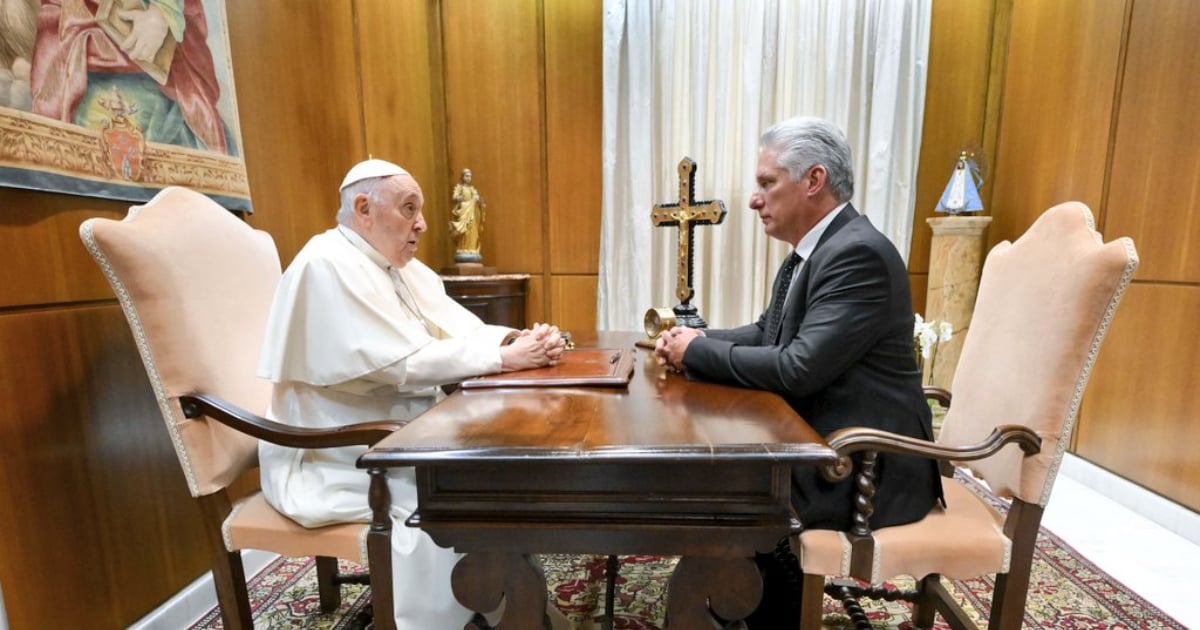The Cuban government has declared the upcoming release of 553 incarcerated individuals. This decision comes as a result of negotiations with the United States, facilitated by the Vatican. According to an official statement from the Ministry of Foreign Affairs (Minrex), this action aligns with the Ordinary Jubilee of 2025 declared by Pope Francis, and is presented by the Cuban government as a demonstration of the "humanitarian and just" nature of its justice system.
Without explicitly referencing the agreement with U.S. President Joe Biden's administration—which includes removing Cuba from the list of state sponsors of terrorism and suspending Title III of the Helms-Burton Act—the Minrex emphasized that this release is part of the "close and fluid relations" between the Cuban state and the Vatican.
President Miguel Díaz-Canel reportedly informed the Pope of this initiative in a letter sent last January, expressing the intention to free the sanctioned individuals as a symbolic gesture in the spirit of the Jubilee.
The statement also highlights that more than 10,000 inmates were released in Cuba between 2023 and 2024 under various legal frameworks, underscoring that such practices are "common in the Cuban justice system" and part of the humanitarian tradition of the Revolution. The relationship between Cuba and the Vatican is described as "respectful and constructive," with the Cuban regime crediting Pope Francis for playing a crucial role in facilitating decisions like the release of these 553 prisoners, who will begin receiving their benefits gradually.
This measure follows previous discussions between Díaz-Canel and Pope Francis in June 2023, as well as a meeting between Cuban Foreign Minister Bruno Rodríguez Parrilla and Vatican representatives in 2022. During these conversations, beyond mutual interests, they also addressed the adverse effects of U.S. policy towards the island, highlighting the Vatican's role as a mediator.
However, regime critics and human rights organizations have voiced skepticism about the transparency of this process, demanding clarity on the criteria used for selecting beneficiaries and the conditions under which their release will occur.
The release of these 553 inmates occurs amid ongoing internal tensions on the island and international criticism of the Cuban prison system, drawing attention to the regime's human rights policies.
In a related development, the Biden administration announced on Tuesday that Cuba would be removed from the list of state sponsors of terrorism and that Title III of the Helms-Burton Act would be suspended. This decision, following mediation by the Catholic Church, includes the release of a "significant number of political prisoners" in Cuba. According to Martí Noticias, a senior U.S. official described this move as a unilateral decision, involving a promise from the Havana regime to the Catholic Church to free political prisoners.
Key Questions about the Cuban Prisoner Release
What prompted the Cuban government to release 553 prisoners?
The release of 553 prisoners by the Cuban government was prompted by negotiations with the United States and mediation by the Vatican, in the context of the Ordinary Jubilee of 2025 declared by Pope Francis.
How is the Vatican involved in this agreement?
The Vatican acted as a mediator in the negotiations between Cuba and the United States, facilitating the decision to release the prisoners as part of a broader agreement.
What changes did the Biden administration make regarding Cuba?
The Biden administration announced the removal of Cuba from the list of state sponsors of terrorism and suspended Title III of the Helms-Burton Act, following negotiations involving the release of political prisoners in Cuba.
